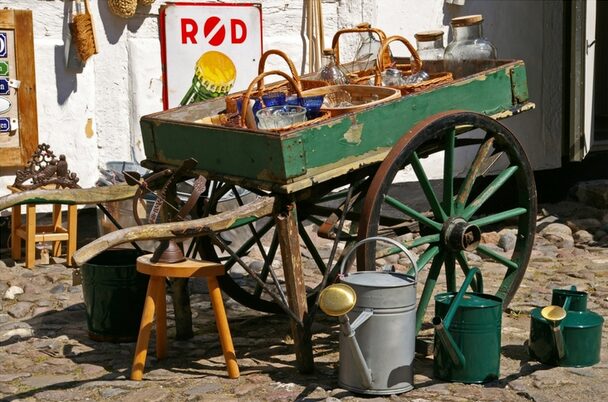
The clarification relating to taxation of second hand goods comes after doubts were raised regarding the applicability of the Margin Scheme under the GST for dealers in second-hand goods in general and for dealers in old and used empty bottles in particular.
A second-hand dealer of goods works in two ways:-
(1) He buys the goods from one person and sells it to other keeping his margin of profit.
(2) He helps in selling the goods on some commission.
The second way of doing business i.e. on commission basis has been specifically dealt in the law and is termed as service and the same is taxable presently @18%.
However there was lot of misunderstanding and confusion among the dealers where the dealer buys the goods from one person and sells the same to the other. This has been cleared by a notification released recently regarding GST on second hand goods. This has been detailed as under.
Under the GST Regime there is no difference on the rate of tax to be charged on the new or second hand goods. So if a new car attracts say 28% of GST the rate of GST applicable to second hand car will also be 28%. GST will be charged on the value of supply which is determined below.
Rule 32(5) of the Act provides where a taxable supply is provided by a person dealing in buying and selling of second hand goods i.e. used goods as such or after such minor processing which does not change the nature of the goods and where no input tax credit has been availed on the purchase of such goods, the value of supply shall be the difference between the selling price and the purchase price.
For Example - 'P', an unregistered common man goes to a Car dealer to sell his car for let's say Rs.600000/-. Now the car dealer who is dealing in the business of second hand goods purchase that car and sells the same to another person say 'Q' at Rs.700000/-. Now the rule says that the tax shall not be paid on the full amount of Rs.700000/- but on the difference between the selling and the purchase price i.e. (Rs.700000/- - Rs.600000/- = Rs.100000/-).
So by way of this valuation rule the government had tried to give relief to this trade that the tax will have to be paid not on the whole of the amount but only to the value addition done by the second-hand dealer thus minimizing the cascading effect. However, there is condition to this valuation rule that the nature of goods should not change. Similarly, in the marginal scheme notification, the relief is available only if the same goods are sold.
If the value of supply is negative ( i.e if sold at a price cheaper than the purchase price), it shall be ignored. This is known as the margin scheme. In this case GST will not be levied. This is applicable only when provided there is no change in nature of goods and credit on purchased second-hand goods is not availed by the dealer.
Thus, Margin Scheme can be availed by any registered person dealing in buying and selling of second-hand goods (including old and used empty bottles) and who satisfies the conditions as laid down in Rule 32(5) of the Central Goods and Service Tax Rules, 2017.
Further, the government notification exempts Central Tax leviable on intra-state supplies of second-hand goods received by a registered person dealing in buying and selling of second-hand goods (who pays the central tax on the value of outward supply of such second-hand goods) from any supplier, who is not registered.
"This has been done to avoid double taxation on the outward supplies made by such registered person since such person operating under the Margin Scheme cannot avail input tax credit on the purchase of second-hand goods," the Finance Ministry said here in a statement.